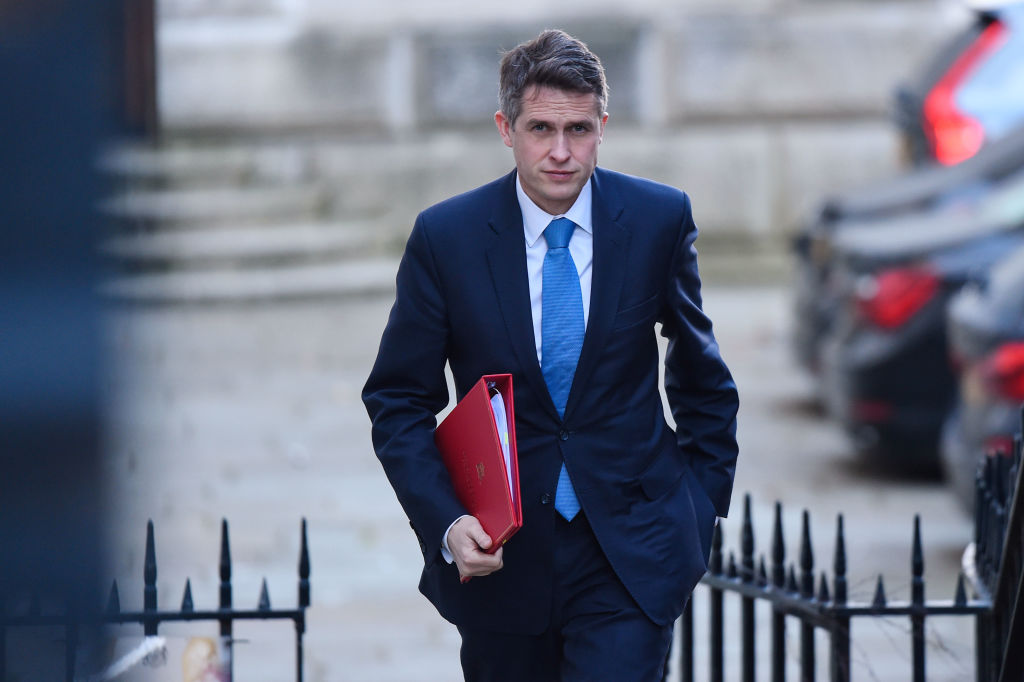You could not make it up – and if you did, no-one would believe you. I am trying to think of a more comprehensively farcical example of total, grotesque ineptitude in the history of modern British politics. Trying, and failing.
Fortunately, there are two instant remedies. The first is a U-turn: dump the algorithm and grant pupils the grades which their schools had predicted. The same would apply to GCSEs. This is anything but an ideal outcome, but it would at least prevent the collapse of the university admissions system, mass legal action and mass unhappiness.
The second also involves dumping – of Gavin Williamson. It seems inconceivable that he is still clinging to office. His doing so is further, and superfluous, proof that he is not cut out to be a Cabinet Minister, even in a Government as weak as this one. He is a likeable fellow, but as the late Alan Watkins often said, politics is a rough old trade. Sooner rather than later, incompetence will be brutally exposed. We urgently need a good Education Secretary, and not only to clear up the current mess. When the universities reassemble in October, we can expect mass hysteria in many of them, often abetted by spineless dons.
The government has never learned to take the public into its confidence and treat adults as if they were indeed grown-ups
There will be a requirement for an education secretary with moral stature, intellectual authority and political weight. Mr Williamson? That would not merely be a joke. It would be a nightmare.
There is also a longer-term problem. Two hundred years ago, the Luddites protested against mechanisation and industrialisation. They claimed that this would destroy livelihoods. They were right. Some groups of workers did suffer. Hand-loom weavers are an obvious example. But many more jobs were created, so the Luddites could be hanged, transported or otherwise brushed aside.
Two centuries on, the mythical Ned Ludd may be ripe for resurrection. Artificial intelligence, robotisation, globalisation et al. could destroy millions of jobs, and with them, social stability. Dealing with this would task the ingenuity of a much abler man than Gavin Williamson. To make a living, the rest of the country cannot rely on Boris Johnson’s willingness to tolerate feebleness.
That is also true of Mr Johnson himself. To an extent that would have seemed inconceivable after his decisive election win, he is in trouble. This might seem unfair. The UK’s handling of the virus has not been conspicuously worse than that of most other countries. But politicians cannot rely on fairness. Moreover, there have been mistakes, especially on presentation. The government has never learned to take the public into its confidence and treat adults as if they were indeed grown-ups. Nor are the failures limited to public relations. When was the last time that this government got something right?
Thus far, Boris’s poll ratings have not suffered as badly as might have been expected. Yet that could change, rapidly. I suspect that the support for him is shallower than the raw figures would suggest, which is equally true of his standing among Tory MPs. Although this did not ultimately save either of them, Margaret Thatcher and David Cameron both had followers who would have died in a ditch for their leader. That is not true of Boris. His colleagues will suppress their doubts as long as they believe that he is a winner. If that ceased to be the case, he would rapidly come under pressure.
The PM is a much more complex character than the goofy exterior would suggest, and also a less secure one. There is a comparison with Tony Blair. The Blair interior personality had resemblances with a burglar, who has broken into a great house. Padding along a corridor in search of swag, he comes across the owner. Instead of shouting for help, he says: ‘There you are. We’re ready to start dinner.’ Shortly afterwards, the burglar/PM is sitting down, surrounded by everything to delight the palate. But he cannot help cocking an ear, for the sound of sirens. I believe that Boris too is astonished, as well as delighted, at the public’s willingness to buy his act. He has created a persona based on charm, using humour to disarm critics. Yet this is no clue to what is happening behind the mask, which owes far more to calculation and ambition than to Bertie Woosterish insouciance. He wanted the top job, very badly. But it is still not clear why. Ambition for himself, fine – but what are his ambitions for the country? The nearest he has come to an expression of political philosophy is ‘have cake, eat cake’, which does not take us far.
There is another aspect to this. Boris has few close friends and it is not clear how interested he is in other people. This is a man locked in himself. That may be why he is such a poor judge of political horseflesh. At a time of crisis, he has a cabinet full of mediocrities, while able people are confined to junior roles – or the back-benches.
Crisis: in Whitehall today, they think of little else. There are three looming fears. The first is a second spike, with death-rates rocketing upwards. The second is an economic near-collapse. The third – is both, simultaneously. If that did happen, Boris would be down and out, competing for a legacy prize with Theresa May (and Gavin Williamson).
All that said, there are always two caveats when dealing with Boris. The first is to deceive yourself that you understand him. The second is to underestimate him. He is going to have to raise his game and strengthen his cabinet. He is ambitious enough, and ruthless enough, to recognise this. It might seem absurd to advise against writing him off so soon after he won an election. Yet it is not absurd: merely good advice.






Comments